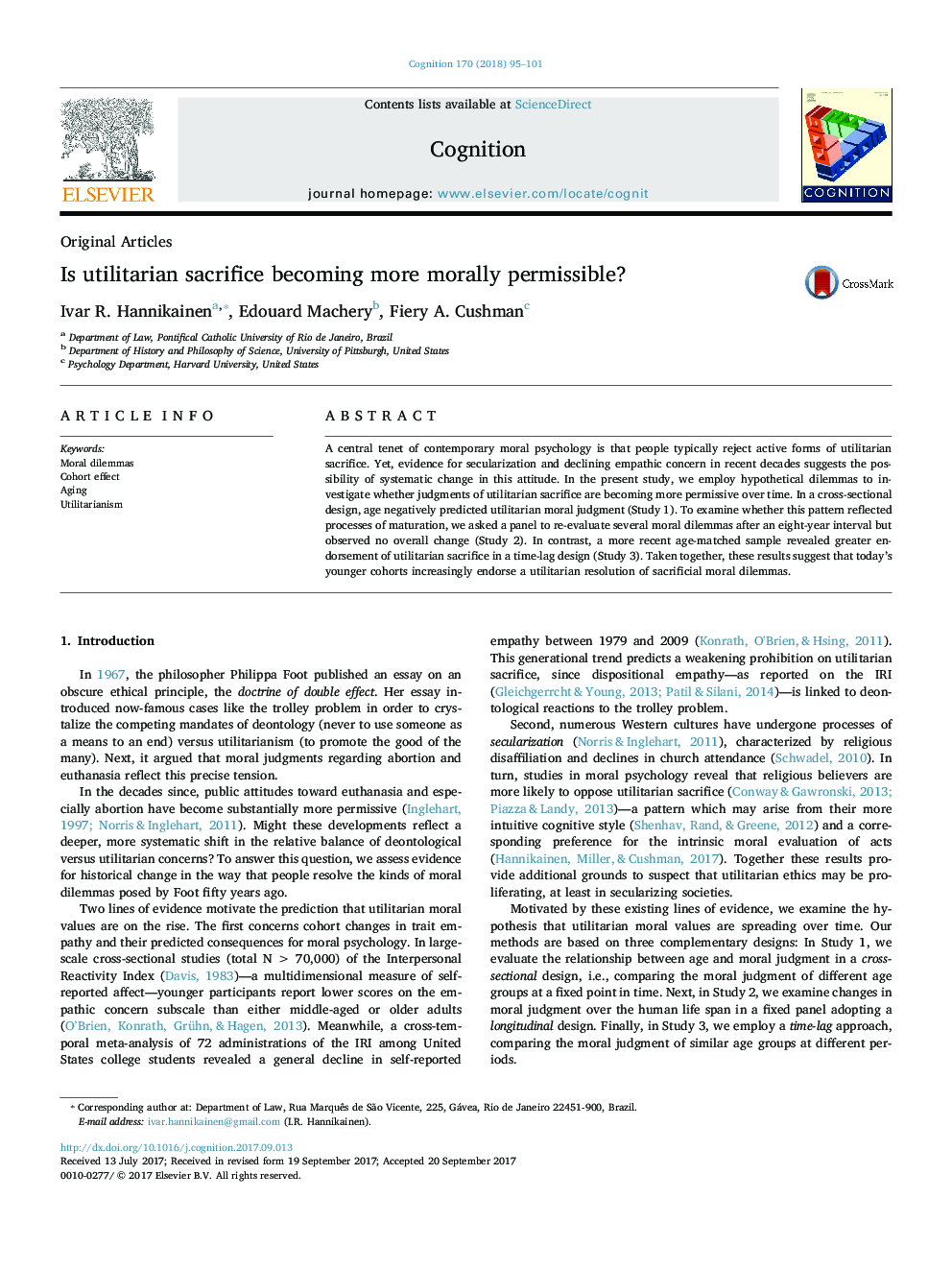| Article ID | Journal | Published Year | Pages | File Type |
|---|---|---|---|---|
| 5041403 | Cognition | 2018 | 7 Pages |
A central tenet of contemporary moral psychology is that people typically reject active forms of utilitarian sacrifice. Yet, evidence for secularization and declining empathic concern in recent decades suggests the possibility of systematic change in this attitude. In the present study, we employ hypothetical dilemmas to investigate whether judgments of utilitarian sacrifice are becoming more permissive over time. In a cross-sectional design, age negatively predicted utilitarian moral judgment (Study 1). To examine whether this pattern reflected processes of maturation, we asked a panel to re-evaluate several moral dilemmas after an eight-year interval but observed no overall change (Study 2). In contrast, a more recent age-matched sample revealed greater endorsement of utilitarian sacrifice in a time-lag design (Study 3). Taken together, these results suggest that today's younger cohorts increasingly endorse a utilitarian resolution of sacrificial moral dilemmas.
